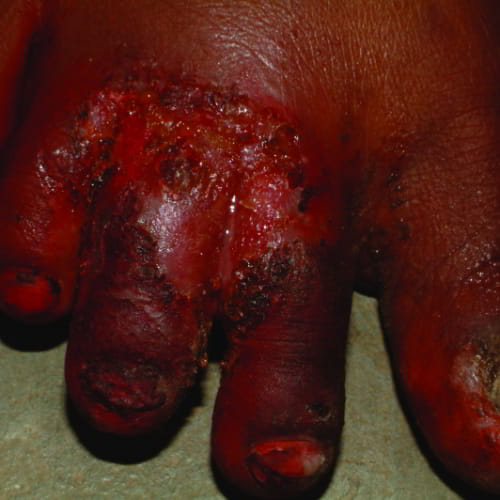GFA World’s Medical Missions
People in developed countries may take it for granted that we can see a doctor when we get sick, but for many people worldwide, that is nearly impossible, which is why medical missions are so vital. According to a World Bank and World Health Organization report, half of the world’s population cannot obtain health services. Of those who can get care, about 800 million people spend at least 10 percent of their household budgets on health expenses for themselves, a sick child or other family member. For almost 100 million of those people, the medical expenses are high enough to push them into extreme poverty, forcing them to live on $1.90 or less per day.[1]
Families in poverty are left vulnerable to simple diseases. They are too poor to afford vitamins, nutritious food, and many have never been taught basic health and hygiene principles. This means countless people are suffering and dying from preventable diseases and are unable to afford the treatment that would cure them.
- Burns remain untreated.
- A simple case of treatable pneumonia becomes deadly.
- Diarrhea ravages the old and the young.
- Anemia weakens already frail bodies.
- Headaches and other warning signs of serious ailments must be ignored.[2]
This is why there is such a desperate need for medical missions. Outreach of this kind can take on several forms, GFA World uses a form called medical camps.
These camps bring skilled doctors, medical staff, medication and health training to places where people have rarely had the chance to see a doctor. GFA holds the camps in our churches, remote villages, crowded slums or any place where there is a need and an opportunity. Each camp typically serves between 200 and 1,000 people, providing free pediatric care, eye checkups and general health care.[3]
Doctors at the camps diagnose illnesses, treat injuries, give out medicine, advise parents and assist those who need further treatment. One woman, named Neeta, waited in line with 450 other people at a camp. When she saw the doctor, it was found that she had appendicitis, and the next day, she had the operation at no cost to her. While people like Neeta wait in line to be seen, the medical staff teaches them about hygiene, hand washing, sanitation, nutrition, clean water and regular checkups, especially for pregnant mothers.[4]
For instance, many people come to the medical camps with illnesses like malaria, dengue fever, yellow fever, the Zika virus and other infectious diseases caused by insect bites. Thus, doctors at the camps urge their patients to protect their homes from stagnant water—a breeding ground for mosquitoes—and to sleep under mosquito nets. Due to poverty, many families cannot purchase the disease-preventing tool on their own, so GFA’s missionaries distribute the nets and teach people how to use them. A mosquito net can last two to three years, promoting good health in a family the whole time.[5]
Click here, to read more about this article.
Click here, to read more blogs in Gospel for Asia.Com



Comments
Post a Comment